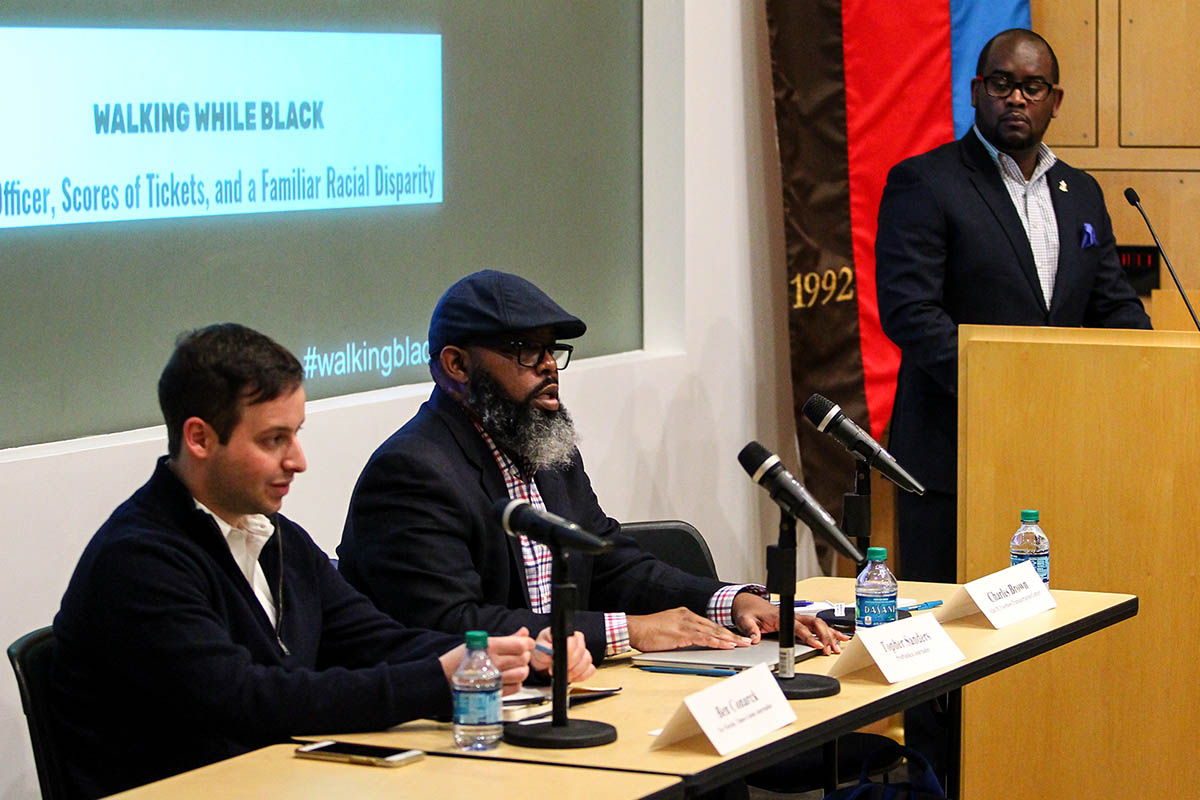by Zoe Linder-Baptie MPP/MCRP ’18
Students who pursue their degrees at the Bloustein School see these areas of study as opportunities to change the world around them for the better.
Earlier this year, the Alan M. Voorhees Transportation Center hosted reporters Topher Sanders of ProPublica and Benjamin Conarck of the Florida Times-Union to discuss the ProPublica/Florida Times-Union “Walking While Black” investigative series, which explores the connections between pedestrian safety, violations and arrests, and race.
What makes this discussion relevant and interesting to the Bloustein community is that it points out the how infrastructure choices, especially for pedestrians, contribute dramatically to these connections and the further criminalization of blackness.
Through a discussion moderated by Charles Brown, senior researcher at the (VTC), the audience learned about the reporters’ backgrounds and were taken through the study. This series was initiated when Ben began to carve out a niche for his own reporting in Jacksonville by covering police accountability. He began visiting with marginalized communities to listen and learn about what was important to them; what he found was that many people in low income communities of color were struggling with various institutional hurdles brought about by citations issued for their behavior while walking down the street.
In Jacksonville there are 28 different statutes that provide rules about how people get around on foot. Some are common, like jaywalking; others are less expected. Some of those that people may be unaware of include being ticketed for walking across at a yellow light, not walking on the sidewalk when there is one, or not walking on the left side of the street if there isn’t. All of these statutes make it easy to imagine how the Sheriff’s office can issue hundreds of pedestrian citations a year.
Jacksonville has one of the highest ratings for pedestrian fatalities in the country, and as Ben and Topher described it, is also a conservative auto driven city, which can inspire some planning and policy issues similar to many other places that students at Bloustein study. But when they looked closer at what was happening, they found that despite claiming to use the high fatality rate as a reason to pay close attention to pedestrian behavior, the officers were also using it as a way to stop people and question them for unrelated activities like gun or drug possession. In many cases this interaction would eventually lead to problems with peoples jobs, homes, and cars.
The major reasons people are disobeying some of these 28 statutes? The built environment. Jacksonville does not build with people in mind, and a few communities depend much more on being able to walk places. Enforcement will not change pedestrian behavior if the grocery store is across the street but the closest cross walk is 1.5 miles away.
Ben and Topher’s advice to planning and policy students is to find ways to slow down traffic, and build infrastructure with people in mind, not just cars. They also suggest looking to the legislature, since there is no current reason why there should be 28 different statutes related to pedestrian behavior, and public officials may not be aware of these connections. It is the job of planners and policy makers to educate them.
To watch the recording of this event, click here.




